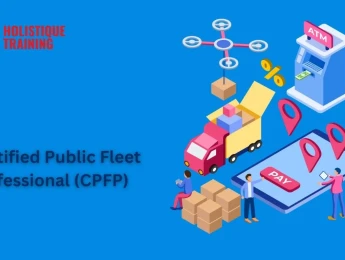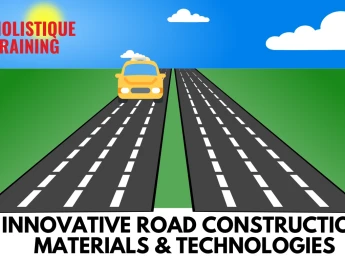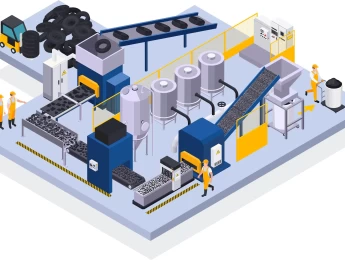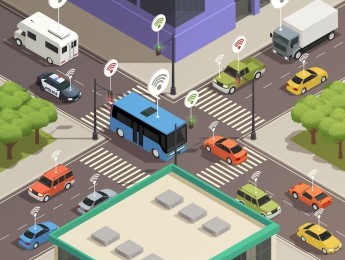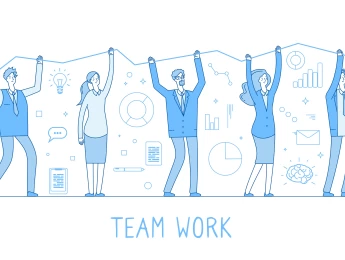Effective transport is essential in all aspects of society. Countless organisations and the public utilise various modes of transport daily to provide services, work and carry out all other day-to-day functions. For those responsible for traffic and transport management, it is crucial to have a complex understanding of the fundamentals to ensure all systems and functions can work to maximum productivity.
Engineering plays a vital role in traffic and transport. This ensures that all functions work as intended and can completely meet consumers' demands. Consumers' needs constantly change, making it necessary to constantly evaluate traffic trends and challenges so that transport systems can be adjusted and developed to prevent negative consequences.
Engineering supports the consumers and benefits the organisations involved. Effective transport and traffic will reduce costs, promote more effective practices, and reduce negative environmental impacts. Correcting, monitoring, and managing transport systems will also guarantee all customers' and workers' health and safety.
Upon completion of this course, participants will be able to:
- Understand the vitality of effective traffic and transport engineering.
- Analyse and comprehend the characteristics of different traffic modes.
- Effectively manage various traffic modes to ensure safety and efficiency.
- Assess potential challenges each traffic mode may face and implement solutions.
- Identify market demands for suitable traffic mods.
- Review new engineering technologies and how these can be used to advance existing and future transport and traffic.
- Accurately plan, design and implement various traffic mods.
- Describe the role and importance of each traffic mode.
This course is designed for anyone responsible for managing or implementing engineering relating to traffic and transport. It would be most beneficial for:
- Civil Engineers
- Data Analysts
- Strategic Development Managers
- Project Managers
- Operations Managers
- Traffic and Transport Engineers
- Electrical Engineers
This course uses a variety of adult learning styles to aid full understanding and comprehension. Participants will review case studies of real-world traffic systems to highlight key features, potential challenges, and their solutions.
All necessary equipment will be provided to all participants to ensure full engagement with the learning activities is possible. They can partake in video materials, group discussions, presentations, and practical activities. Alongside the provided case studies, participants will have an extensive opportunity to develop their knowledge and practical skills in the content taught.
Day 5 of each course is reserved for a Q&A session, which may occur off-site. For 10-day courses, this also applies to day 10
Section 1: Air Traffic Engineering
- The concepts and principles of air traffic engineering.
- How air transport is utilised for various functions.
- The difference between cargo traffic and passenger traffic.
- Balancing the requirements of cargo transport and passenger transport.
- Various air traffic mods and their advantages and disadvantages.
- Maintaining health and safety for air transportation.
Section 2: Road Traffic Engineering
- The importance of efficient road traffic engineering for different types of cities and structures.
- Major and minor risks of road traffic and finding the most effective solutions.
- Environmental impacts of road traffic and methods of reducing pollution.
- Evolution of road traffic demands and implementation of new technologies to meet them.
- Effective road management, monitoring and control.
Section 3: Rail and Water Traffic Engineering
- Types of railway transport – metro, light metro, and underground metro.
- The requirements of metro services and how to meet customer demands.
- The differences between cargo and passenger trains.
- Maintaining maximum safety for all those involved.
- Types of water transport – cargo and passenger vessels.
- Planning and arranging container shipping.
- Reducing negative environmental impacts for both rail and water transport.
Section 4: Multimodal Transport Engineering
- Planning for multimodal transport.
- Understanding the intermodal process.
- Ensuring effective gate to gate service.
- Merging new technologies with existing technologies to guarantee safety and efficiency.
Section 5: Telecommunication Traffic
- Transmitting necessary data.
- Balancing network traffic and ensuring systems can remain at maximum productivity.
- Understanding the connected world.
- Current and future systems that manage and transmit data.
Section 6: Information Structures
- Traffic and transport management centres structures and functions.
- Information controllers and providing a service.
- Granting important and necessary information to users.
- Advanced and intelligent traffic and transport systems.
- Market trends and the future of traffic and transport engineering.
Upon successful completion of this training course, delegates will be awarded a Holistique Training Certificate of Completion. For those who attend and complete the online training course, a Holistique Training e-Certificate will be provided.
Holistique Training Certificates are accredited by the British Assessment Council (BAC) and The CPD Certification Service (CPD), and are certified under ISO 9001, ISO 21001, and ISO 29993 standards.
CPD credits for this course are granted by our Certificates and will be reflected on the Holistique Training Certificate of Completion. In accordance with the standards of The CPD Certification Service, one CPD credit is awarded per hour of course attendance. A maximum of 50 CPD credits can be claimed for any single course we currently offer.
- Course Code IND03-104
- Course Format Online, Classroom,
- Duration 5 days




